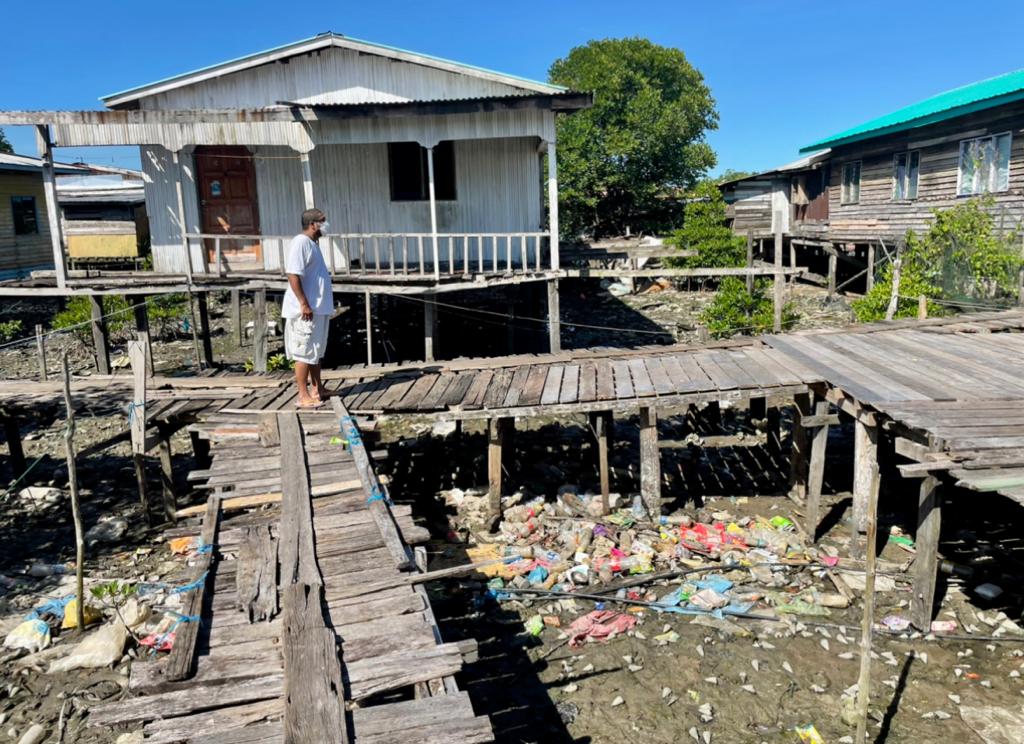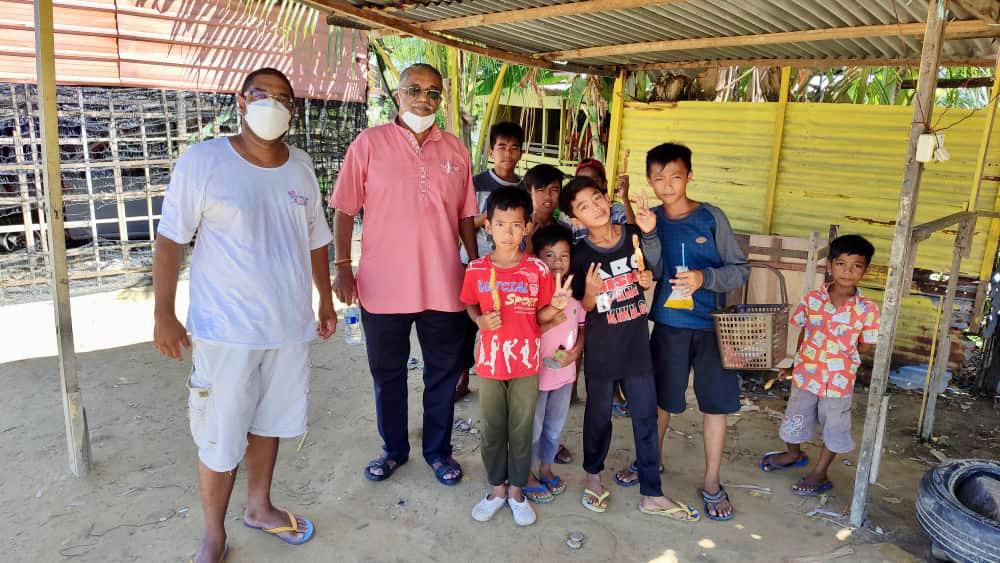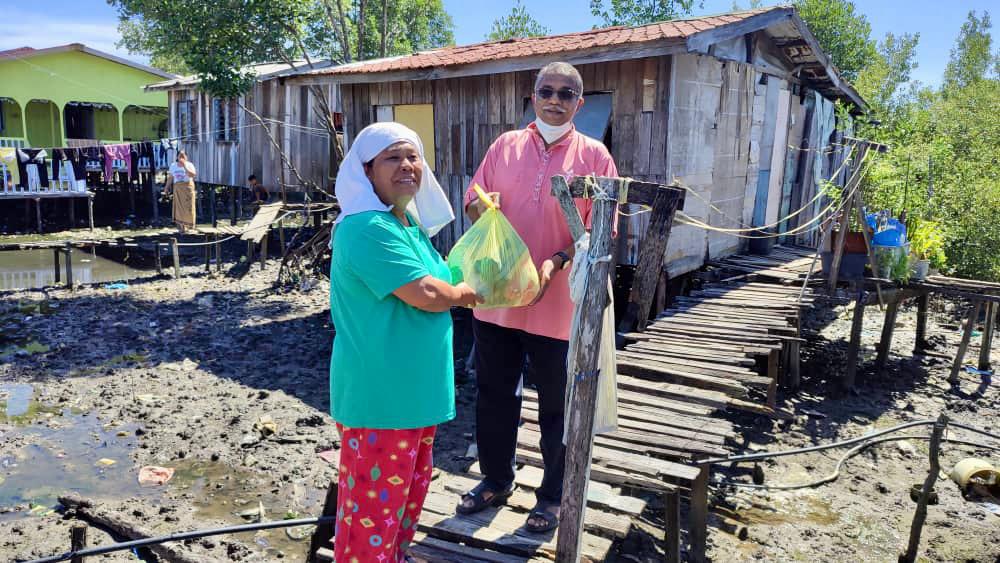
If we venture out of our “comfort zone”, we would know of living conditions like those in Kampong Mangkalinau, Sandakan, Sabah.
This is what members of the Penang Hindu Association (PHA) and Klinik Derma Sivasanta (KDS) were exposed to when they were on a visit to Sabah recently.
“When the word “slum” is mentioned, what is typically visualised is an overcrowded and disorganised settlement where people are crammed into very small living spaces with miserable and usually unhygienic living conditions.
“This scenario would be normally perceived to be located somewhere remote in a distant country. However, it may come as a surprise to many when told that such conditions exist in our own country.
“It is indeed shocking for us to see an urban slum settlement there, with hardcore poor families living in deplorable conditions, in derelict wooden houses that stood on flimsy stilts,” said P. Murugiah, President of Penang Hindu Association.
He added that the wooden “bridge” leading to Kampong Mangkalinau slum dwellers was made out of tree branches, wood planks and had big gaps between the pieces. The residents and volunteers had to be extra careful walking on the unstable structure.
“Upon seeing this, PHA and KDS decided to provide the settlers with food baskets as a temporary relief.
“With the help of YB Calvin Chong Ket Kiun, the State Assemblyman in Sandakan, Sabah and Sandakan Indian Association (SIA) President Taren Sunil Manoharan, PHA and KDS managed to distribute the food baskets to 22 single mothers there. We thank the well wishes and donors for helping us to provide the food aid.

“It was noticed that many of the families living in this settlement are homeless migrants who have crudely built houses with corrugated roofs, which gets extremely hot during the day. The dwellers here say that due to the houses being unstable, the roofs are often blown away during storms, and occasionally, the whole house gets destroyed. When such calamity happens, they are forced to seek refuge at poorly constructed shelters in locations that are unsafe,” he added.
He also shared that there is also no proper sanitation system here. As such, the exteriors of their houses are littered with plastic containers, wrappers, bottles and other garbage. During high tide, these rubbish can be seen floating in the black and smelly waters, creating a highly vulnerable situation for worm-infections and other parasitic diseases to spread, apart from the obvious consequence of environmental degradation.
On top of this, the dwellers here have limited or no access to basic utilities such as water, toilets and electricity. Some of the houses here have earthen floors and these are almost impossible to keep clean and turn to mud when it rains or during high tide.
It was also found that most of the slum children here are not attending school on a regular basis, and some of them have even resorted to work in order to support their families.
“We therefore urge the State Government and the Local Council to consider re-zoning this area and build decent homes for these dwellers and to provide them with basic utilities such as easy access to safe water and electricity in order to give them a better quality life. After all, water and sanitation are basic human rights which must be guaranteed to all people without discrimination, including people living in slums and informal settlements.


